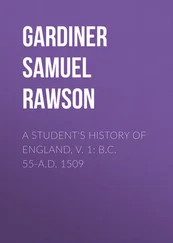George Gardiner - A Forbidden History.The Hadrian enigma
Здесь есть возможность читать онлайн «George Gardiner - A Forbidden History.The Hadrian enigma» весь текст электронной книги совершенно бесплатно (целиком полную версию без сокращений). В некоторых случаях можно слушать аудио, скачать через торрент в формате fb2 и присутствует краткое содержание. Жанр: Исторические приключения, на английском языке. Описание произведения, (предисловие) а так же отзывы посетителей доступны на портале библиотеки ЛибКат.
- Название:A Forbidden History.The Hadrian enigma
- Автор:
- Жанр:
- Год:неизвестен
- ISBN:нет данных
- Рейтинг книги:5 / 5. Голосов: 1
-
Избранное:Добавить в избранное
- Отзывы:
-
Ваша оценка:
- 100
- 1
- 2
- 3
- 4
- 5
A Forbidden History.The Hadrian enigma: краткое содержание, описание и аннотация
Предлагаем к чтению аннотацию, описание, краткое содержание или предисловие (зависит от того, что написал сам автор книги «A Forbidden History.The Hadrian enigma»). Если вы не нашли необходимую информацию о книге — напишите в комментариях, мы постараемся отыскать её.
A Forbidden History.The Hadrian enigma — читать онлайн бесплатно полную книгу (весь текст) целиком
Ниже представлен текст книги, разбитый по страницам. Система сохранения места последней прочитанной страницы, позволяет с удобством читать онлайн бесплатно книгу «A Forbidden History.The Hadrian enigma», без необходимости каждый раз заново искать на чём Вы остановились. Поставьте закладку, и сможете в любой момент перейти на страницу, на которой закончили чтение.
Интервал:
Закладка:
Subjugation and domination are perceived to be a Roman male's purpose in life. The way of the phallus rules. This is our ancient heritage, we proclaim. We despise intimate emotion. It is a sign of weakness. Only the meek, slaves, losers, and girls succumb to such defects. They are to be pitied.
Yet there are times when even I seriously wonder about this?
However in Bithynia, perversely, it is the giving and receiving of pleasure which rules. To this rustic breed pleasure is a two-way exchange at minimum, or every-which-way when inclined. Sex is a leisure activity, play, a game, recreation, an exercise in indulgence, a mode of luxury.
Those ancient rulers of Bithynia, the dynasty of her four opulent Nikomedes kings, were lauded across the Middle Sea as dissolute practitioners of this quality of luxury. Since Rome's annexation of the province our virile Roman tastes have been infiltrating this Dionysian culture very slowly indeed, if at all.
To Bithynia's social elites sexual appeal is focused upon the beauty of the object, a person's visual or moral attraction. This aesthetic ignores class, status, or even gender. The Bithynians are famously gender blind. Human beauty is praised, wooed, and hopefully consummated, regardless of the vehicle.
A century ago that last of the Bithynian kings, the notoriously bawdy Nikomedes IV, happily satisfied this racy itch while entertaining a visiting Roman ambassador. The ambassador was the nineteen year-old Julius Caesar. It seems our handsome future triumphant Roman victor of wars was introduced very personally, very intimately indeed, to the Bithynian mode of luxury. Consequently, his Legions later regaled the founder of the dynasty of the Caesars as being "every woman's husband and every man's wife'.
Yet today Rome's stolid elders reject such license. To Romans, the Bithynians are soft, decadent, compliant, accommodating, too easily subjugated, too readily penetrated.
I am unsure which of these opposing convictions is the more natural under a philosopher's definition of Nature's Law? Surely if something occurs in Nature it is natural? Read Epicurus or Lucretius of long ago. But try telling that to Rome's austere Stoics or those atheist followers of Chrestus who pester us with their prissy ways while defaming our gods and habits! Their abstemious asceticism chills our blood. It is utterly unRoman.
This leads us inevitably to — What then is love?
Is love the urgent compulsion to have your way with someone, Roman style? Or is love some more ambiguous sensation, Bithynian style? Our thinkers search exhaustively for the answer. Even today's philosophers Plutarch or Epictetus display uncertainty.
Take Hadrian and Antinous. Was this a love? Was it Roman style or Bithynian style?
Caesar's promotion of his former companion to the status of Divus — godlike — positively compels our query.
His edict about the young man's divine nature, as depicted by statues of the muscular stud as a New Apollo which are popping up all over the place, or the commemorative medallions being minted with his chiseled features, or the many reports of miracles attributed to his role as Osiris Resurrected, or the discovery of his new star in the heavens, plus the cult burgeoning everywhere in his name, make debate almost compulsory.
Was the five year liaison of these two a mere bizarre, brazen, delirious debauchery? Or was it a romance to touch our minds and hearts? Was it of Cupid, who Greeks call Eros, or was it of Venus, who they call Aphrodite? It was certainly a striking phenomenon.
Consequently I dedicate these scrolls of A Forbidden History to our Great Caesar. With luck they will persuade Hadrian how my revelations before the Court at Egypt three months ago were necessary to his peace of mind. The revelations do not warrant my head being cleaved from my shoulders.
In preparing my chronicle for the public record I have interviewed courtiers at the highest echelons of the Imperium. I have searched into times gone by to explore the hidden pasts of key participants.
I and my aide-in-detection, the beguiling Syrian beauty Surisca of Antioch, have probed the Court's incessant gossip mill to weave together this tale's dense tapestry.
Surisca is a captivating daughter of Aphrodite. She is a sweet courtesan enchantress of striking charms and superior intelligence whose worldly perception provided sharp insights into these concealed treasons. Surisca became my eyes, my logic, and even my heart.
I will relate these events as I experienced them. I will recount this saga as in a novella or romance by, say, Titus Petronius Niger of long ago. Incorrigible Petronius lived in the days of Caesar Nero and fell victim to that ruler's vile temper. His lively Satyrica parodied the truths of that despised tyrant's rule to warn us of the dangers of despotism. He paid the price for his witticism. But my tale is no comical parody. It will communicate the events of the life and death of Antinous as they occurred, plainly.
In this Forbidden History I will take a role as a character in the unfolding scenario. I, Gaius Suetonius Tranquillus, an historical biographer, will appear as but a single performer in my saga.
The treason against Hadrian began long ago, Surisca and I discovered. It began a quarter-century ago at the very edge of Europa on its northern frontier of Dacia. This was an entire decade prior to Hadrian's ascendancy as Caesar and five years before Antinous had even been born. At that distant time at least one contender in my saga was compelled to invoke the remainder of this chronicle's savage drama.
But I am ahead of myself. First we must travel back to Middle Egypt three months ago to revisit the climax of these events. This opens the door to all else.
Here my tale begins -
CHAPTER 1
"Steward! Bring me your latest women!" The well-groomed gentleman of noble demeanor garbed in a summer toga fragrant with rich perfume clapped his hands and called aloud. The thin wisps of smoky blue fume were striking home at last.
Gaius Suetonius Tranquillus breathed the pungent, fetid scent deep into his nostrils. Once again this fruity vapor channeled the sweet-sour rot of an exotic herb deep into his psyche. Suetonius's crepe-skinned, muscle-sagging features relaxed even further. The small ball of resin had only been burning in its Theban faience bowl for barely a few minutes, yet its strength and pungency were already impacting.
"Only new ones, I say. I've already sampled last week's stock," he proclaimed a little too loudly as he inhaled. His judgment was rapidly drifting off-kilter.
Cadmus, the Steward of Slaves, smiled knowingly. As Suetonius fanned the fumes into his face with both hands he was ingesting deeply for full effect. He waited expectantly for its unique warmth to rise once again deep in his being. Such vapors quieten the thoughts, relax the muscles, and ease the aches of many winters. They provide a waning male a fleeting illusion of the forceful virility which constitutes a Roman male's necessary character.
The herb, if that's what it was, was already providing this illusion to his immense relief. This expensive resin, itself the cost of one of the better girls at the House, was indeed of the best quality. The steward claimed it was from the land of Kush, far away to the south beyond the Nile Cataracts into the Africa hinterland.
Yet perhaps, Suetonius cloudily contemplated, it was merely the scrapings of a fungous residue common to a local Egyptian shrub, and so of no real cost whatsoever. In the East such deceits are commonplace. He sensed he had been the unwitting victim of many.
Suetonius, an elegantly mature, handsome Roman noble of the equites educated class, was at the House of the Blue Lotuses. This fine establishment was situated in the Street of Pleasures of the city of Hermopolis Magna, capital of the 15th Nome of the Province of Middle Egypt.
Читать дальшеИнтервал:
Закладка:
Похожие книги на «A Forbidden History.The Hadrian enigma»
Представляем Вашему вниманию похожие книги на «A Forbidden History.The Hadrian enigma» списком для выбора. Мы отобрали схожую по названию и смыслу литературу в надежде предоставить читателям больше вариантов отыскать новые, интересные, ещё непрочитанные произведения.
Обсуждение, отзывы о книге «A Forbidden History.The Hadrian enigma» и просто собственные мнения читателей. Оставьте ваши комментарии, напишите, что Вы думаете о произведении, его смысле или главных героях. Укажите что конкретно понравилось, а что нет, и почему Вы так считаете.












